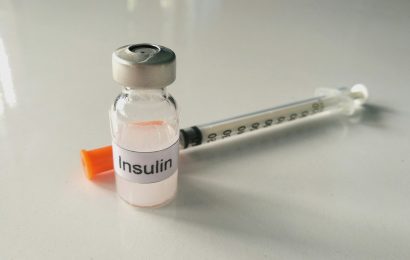The United States has a bit of weight problem. According to the Centers for Disease Control and Prevention (CDC), more than one third of U.S. adults are obese (defined as having a body-mass index, or BMI, of 30 kg/m2 or higher). About 70 percent of adults are overweight (defined as a BMI of 25–29 kg/m2). Obesity affects every state in the nation, although obesity rates are below 20 percent in some counties in Colorado and Massachusetts.
Being obese or even overweight has a variety of consequences, including health, financial, and social consequences. Even community safety and national security can be affected by being overweight or obese. But despite all of the diets, pills, potions, and weight-loss equipment (not to mention gym memberships) available to people, losing weight isn’t all that easy. If it was, we probably wouldn’t see such high rates of overweight and obesity. The weight-loss industry is worth about $66 billion, which is a staggering amount of money. Despite all of the focus and the research dedicated to helping people lose weight, reaching a healthy weight eludes many people.
It’s just not that simple
Losing weight can be hard. Keeping it off can be harder. And what can be equally as frustrating is to do all the “right” things — eating well, exercising regularly, but watching the scale slowly creep up, pound by pound. Health-care professionals often oversimplify weight management (how often have you been to “just eat less and move more”?).
If you’re gaining weight or finding it difficult, if not impossible, to lose weight, you may need to look beyond the obvious (eating too much, not being active enough, or a combination of both). Check out some not-so-obvious factors that can cause you to gain weight.
1. Underactive thyroid
Some people jokingly blame their inability to lose weight on their thyroid. However, an underactive thyroid is no joke. Hypothyroidism is when the body doesn’t make enough thyroid hormone. The result can be a host of symptoms, such as fatigue, joint pain, dry skin, thinning hair, a slow heart rate, depression, and yes, weight gain. Hypothyroidism is more common in women over the age of 60, and in people who have diabetes.
What can you do?
If you have any of the symptoms of hypothyroid, ask your doctor to order blood tests to check your thyroid hormone levels, as well as antithyroid antibodies. Hypothyroidism is treated with supplemental thyroid hormone.
2. Cushing disease
Cushing disease occurs when the pituitary gland releases too much of a hormone called adrenocorticotropic hormone (ACTH), due to a pituitary tumor or an overgrowth of the pituitary. ACTH stimulates the release of cortisol, which is a stress hormone. Symptoms of Cushing disease includes obesity (usually in the upper body), a full face, a “buffalo hump,” bone pain, high blood pressure, diabetes, and mental changes, such as depression.
What can you do?
Your doctor can run a battery of blood and urine tests that measure hormone levels, and should also do a physical exam. Treatment of Cushing disease may involve surgery to remove the pituitary tumor or radiation. If the tumor doesn’t respond to either, you may need to take medicine to stop your body from making cortisol.
3. Lack of sleep
Another sneaky reason for gaining weight is a lack of sufficient shut-eye. When you’re deprived of sleep, your body’s hormones can go haywire. Your levels of cortisol and ghrelin increase, which cause you to feel hungry and eat more. Levels of leptin, which leads to satiety, decrease. Result? You eat. And you’re not exactly reaching for a salad or rice cakes, either. But it’s not just your hormones that are affected when your sleep is short-changed: your metabolism slows, too. Plus, when you haven’t slept enough, your energy levels drop, which means that it’s less likely you’ll want to go for a walk or head to the gym.
What can you do?
The obvious solution is to get enough sleep — about seven to eight hours every night. Try to make sleep a priority. If you have trouble falling and/or staying asleep, talk with your doctor, who may order a sleep study. Visit the National Sleep Foundation’s website for more information .
4. Depression
Being depressed and weight gain can go hand in hand, and there are a couple of reasons for this. First, if you’re depressed, you’re probably not overly motivated to make healthy food choices or be physically active. You might turn to high-fat/high-sugar foods for comfort. Second, you may be prescribed antidepressant medication that may lead to weight gain. Antidepressant medications can affect serotonin levels which, in turn, can lead to cravings for high-carb foods. The most commonly prescribed antidepressants are the selective serotonin reuptake inhibitors (SSRIs), which include fluoxetine (brand name Prozac), sertraline (Zoloft), and paroxetine (Brisdelle, Paxil, Pexeva). Studies have shown that these meds can lead to weight gain.
What can you do?
If you’re taking medication for depression, talk with your doctor or mental health provider about other medication options. Desvenlafaxine (Pristiq), venlafaxine (Effexor), and escitalopram (Lexapro, Cipralex) are a few medicines that are less likely to cause weight gain. In addition, think about setting some small, manageable lifestyle goals to work on. For example, you might set a goal to go for a walk for 15 minutes, or switch to drinking seltzer water instead of soda. Working with a dietitian can be helpful. Physical activity is a mood-booster, and cutting back on refined carbs can also give you a much-needed lift.
Gut bacteria
You might have heard or read about gut bacteria (also called the gut microbiome) and how your health can be affected by the trillions of bacteria that populate your intestines. Researchers are learning that different types or strains of bacteria in the gut can play a role in weight management. In one study, for example, people who had a higher ratio of bacteria called Prevotella lost five pounds more body fat than people who had a higher ratio of Bacteriodetes in their gut. Gut bacteria can also affect how much fat is digested and absorbed. They can even influence the amount of appetite-regulating hormones that are produced; these hormones include leptin, ghrelin, GLP-1, and peptide YY.
What can you do?
It may seem a little creepy to think about the bacteria lurking in your gut. Keep in mind that many of these microbes are “friendly” in that they can promote health. But it’s very likely, thanks to our typical Western diet, that the balance of good and bad bacteria is off. You can change that balance by tweaking your food choices. This means eating whole, unrefined grains; fruits and vegetables; nuts and seeds; and foods that contain probiotics, such as yogurt and kefir. Also, cut back on refined carbs (especially sugary foods), saturated fats, and maybe even some non-nutritive sweeteners such as aspartame and saccharin, as well.
6. Endocrine disruptors
Researchers are finding that certain chemicals can interfere with the endocrine system. Called endocrine disruptors, they may affect reproduction, increase the risk of cancer, and lead to disturbances in the immune and nervous system. More recently, researchers have discovered that some endocrine disruptors can cause weight gain, earning them the nickname “obesogens.” Examples of endocrine disruptors include bisphenol A, dioxin, phthalates, parabens, tributyltin (TBT), and diethylstilbestrol (DES).
What can you do?
It’s difficult, if not impossible, to completely avoid endocrine disruptors. But you can limit your exposure by choosing fresh or frozen foods versus canned foods, avoiding plastic food containers, using personal care products that are free of parabens and phthalates, and installing a reverse osmosis water filter.
Want to learn more about weight management? Read “Tried and True Weight-Loss Techniques,” “Strategies for Weight Management,” and “Why Can’t I Lose Weight?”





